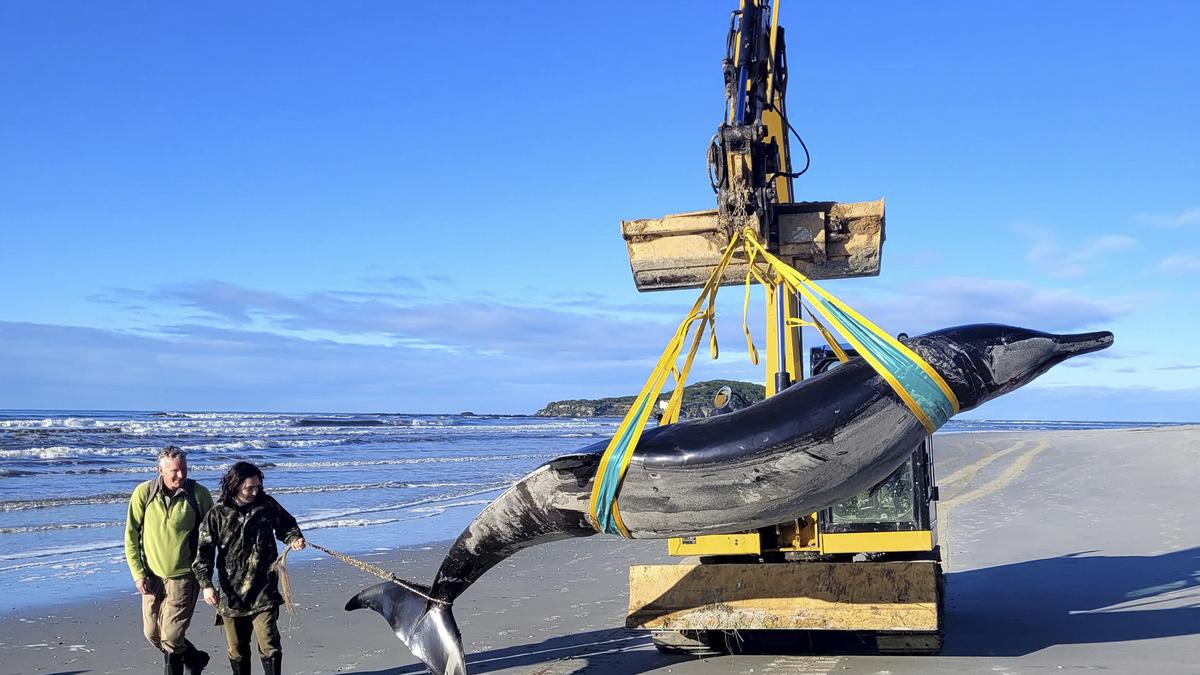
In a remarkable discovery that has stunned marine biologists and conservationists alike, what appears to be the world's rarest whale has been found washed ashore on a beach in New Zealand. The creature, identified as a spade-toothed whale, is so rare that very little is known about it, making this find a significant opportunity for scientific research.
This elusive species, known for its distinctive teeth that resemble garden spades, was first identified in 2010 when a mother and calf stranded themselves on a New Zealand beach. Prior to this recent discovery, sightings of the spade-toothed whale have been extremely rare, leaving scientists with scant information to study their behavior, population, and ecological needs.
Researchers and marine biologists from around the world are now eagerly examining this latest specimen to glean insights into its biology and habitat requirements. Every aspect of the whale's anatomy, from its unique teeth to its skeletal structure, will be meticulously studied to better understand this enigmatic species.
The discovery has sparked renewed interest in the conservation of marine mammals, particularly those as rare and mysterious as the spade-toothed whale. Conservationists emphasize the importance of protecting marine environments and reducing human impact on ocean ecosystems to safeguard the habitats of such rare species.
This find underscores the critical role that New Zealand's coastlines play in marine biodiversity and highlights the need for continued monitoring and protection of these sensitive habitats. As researchers delve deeper into the study of the spade-toothed whale, they hope to uncover more about its migratory patterns, feeding habits, and overall population dynamics.
The significance of this discovery extends beyond scientific curiosity; it offers a poignant reminder of the fragility of marine life and the urgent need for global conservation efforts. With habitats increasingly under threat from climate change, pollution, and human activity, every new piece of information about rare species like the spade-toothed whale is invaluable for informing conservation strategies.
As efforts to understand and protect the world's oceans continue, discoveries like this provide hope and inspiration for future generations of marine biologists and conservationists. The find of the spade-toothed whale serves as a testament to the resilience of these creatures and the importance of preserving their natural environments.


0 Comments